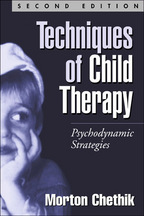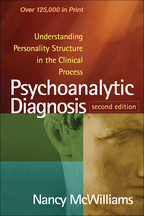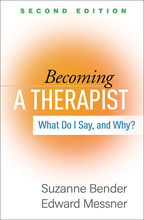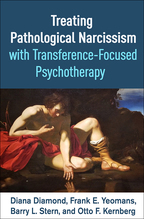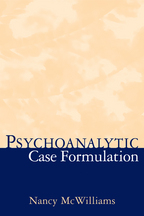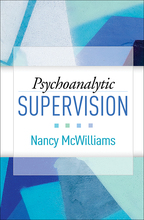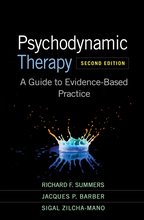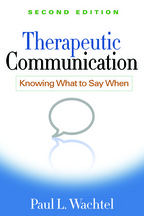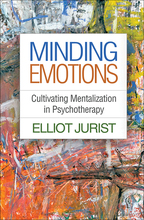Techniques of Child Therapy
Second Edition
Psychodynamic Strategies
Morton Chethik
HardcoverPaperback
Hardcover
orderJuly 18, 2000
ISBN 9781572305281
Price: $65.00 307 Pages
Size: 6" x 9"
Paperback
orderJune 18, 2003
ISBN 9781572309258
Price: $43.00 307 Pages
Size: 6" x 9"
“Chethik has done it again! His new second edition is a fitting extension of the first. This gifted child therapist presents the basic concepts of child therapy and elaborates a detailed account of the clinical process with children and parents. Lengthy and rich case presentations include the therapist's reflections, informing the reader about the clinician's feelings, hunches, and countertransference responses. This rare account of the essence of therapy makes this text a 'must' for all practitioners dealing with children, be they student social workers, child fellows, psychology interns, or more advanced practitioners.”

—Judith Mishne, DSW, Ehrenkranz School of Social Work, New York University
“This book will be welcomed by teachers and students of child psychotherapy, both in graduate training programs and in the extension courses offered by many institutes. Chethik describes what goes into careful biopsychosocial assessment of presenting problems, and clarifies the ways in which treatment subsequently draws on that diagnostic frame. Not only does this author offer unusually rich details about beginnings, middles, and endings in play therapy with children, but he also includes the collateral and often less emphasized work with their parents at these different stages.”

—Jean Sanville, PhD, Los Angeles Institute and Society for Psychoanalytic Studies; author of The Playground of Psychoanalytic Therapy
“In an age when child treatment often consists of an expedient pharmacological 'cure,' Morton Chethik's newly revised Techniques of Child Therapy is a breath of fresh air. The merits of Chethik's dynamic approach are many, including the significance he imputes to thorough diagnostic evaluation and his emphasis on the importance of the parental alliance. Also noteworthy are the book's detailed presentations of treatment process and its discussion of more challenging cases involving severe character pathology. Wise and compassionate, this book serves as a model for the practice of dynamic child psychotherapy. It can be recommended unreservedly to novice and more experienced clinicians alike, be they social workers, clinical psychologists, or child psychiatrists.”

—Jerrold R. Brandell, PhD, BCD, author of Of Mice and Metaphors; Founding Editor, Psychoanalytic Social Work
—Judith Mishne, DSW, Ehrenkranz School of Social Work, New York University
“This book will be welcomed by teachers and students of child psychotherapy, both in graduate training programs and in the extension courses offered by many institutes. Chethik describes what goes into careful biopsychosocial assessment of presenting problems, and clarifies the ways in which treatment subsequently draws on that diagnostic frame. Not only does this author offer unusually rich details about beginnings, middles, and endings in play therapy with children, but he also includes the collateral and often less emphasized work with their parents at these different stages.”
—Jean Sanville, PhD, Los Angeles Institute and Society for Psychoanalytic Studies; author of The Playground of Psychoanalytic Therapy
“In an age when child treatment often consists of an expedient pharmacological 'cure,' Morton Chethik's newly revised Techniques of Child Therapy is a breath of fresh air. The merits of Chethik's dynamic approach are many, including the significance he imputes to thorough diagnostic evaluation and his emphasis on the importance of the parental alliance. Also noteworthy are the book's detailed presentations of treatment process and its discussion of more challenging cases involving severe character pathology. Wise and compassionate, this book serves as a model for the practice of dynamic child psychotherapy. It can be recommended unreservedly to novice and more experienced clinicians alike, be they social workers, clinical psychologists, or child psychiatrists.”
—Jerrold R. Brandell, PhD, BCD, author of Of Mice and Metaphors; Founding Editor, Psychoanalytic Social Work

